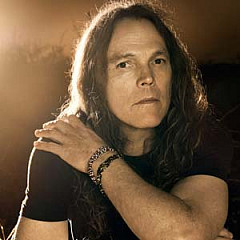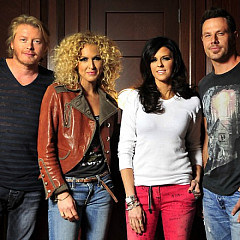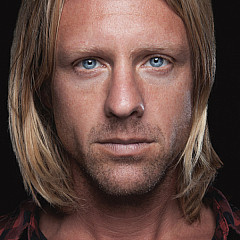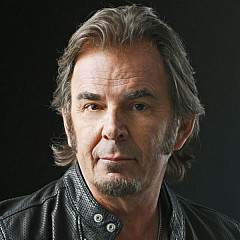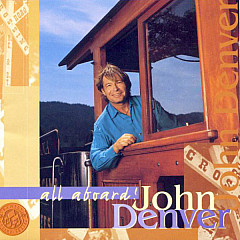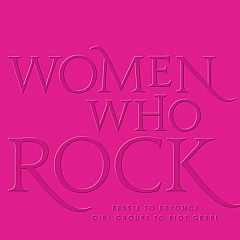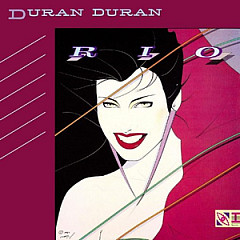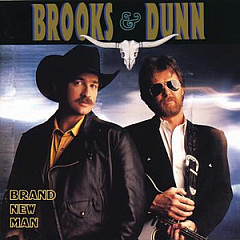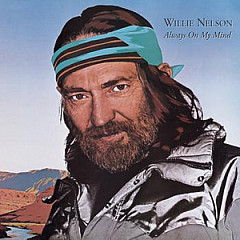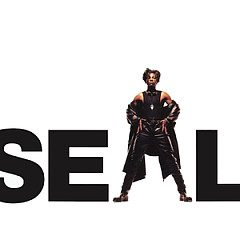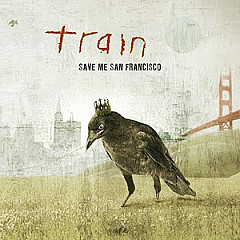Check out this exclusive excerpt below, concerning two of the top acts on Shrapnel Records' '80s era roster, which launched the careers of three shredders - Racer X (which featured a pre-Mr. Big Paul Gilbert) and Cacophony (which featured a pre-Megadeth Marty Friedman and a pre-David Lee Roth Jason Becker).
 Paul Gilbert (Racer X, Mr. Big guitarist; solo artist): Mike Varney had given me the opportunity to do an album. The next goal was to find a band. Nobody knew who I was or anything - I remember calling up musicians and they'd never call me back, because I wasn't offering a proper gig where there's a salary. So I was just hoping that people would play with me out of the goodness of their hearts... and it wasn't happening. So I ended up just finding a couple of students at school that were willing to jam for the fun of it. And they weren't really the players that I wanted for the record, but it allowed me to make demos and at least have something tangible that I could show to any better musicians in the event that I found them.
Paul Gilbert (Racer X, Mr. Big guitarist; solo artist): Mike Varney had given me the opportunity to do an album. The next goal was to find a band. Nobody knew who I was or anything - I remember calling up musicians and they'd never call me back, because I wasn't offering a proper gig where there's a salary. So I was just hoping that people would play with me out of the goodness of their hearts... and it wasn't happening. So I ended up just finding a couple of students at school that were willing to jam for the fun of it. And they weren't really the players that I wanted for the record, but it allowed me to make demos and at least have something tangible that I could show to any better musicians in the event that I found them.So eventually, I found Juan Alderete - who plays with Mars Volta and has had a pretty successful post–Racer X career. But he was the first guy that we really became a sort of "duo" - we jammed together all the time and hung out all the time. And our original drummer, Harry Gschoesser, he was always trying to interview me - he was actually from Austria, and I think he had an extra gig on the side, of interviewing Los Angeles musicians. He was really a go-getter - just always trying to jam.
And the funny thing is he had short hair, and that was a really big issue - I wouldn't even jam with him because he had short hair! [Laughs] Finally, he cornered me and said, "Just come in this room for a second." And he was great. A really good drummer. He kept promising - with his Austrian accent - "I vill vear a vig! Vhen ve do ze photos, I vill vear a vig!" And when we did the photos... he didn't wear the wig. It's funny looking at it now, I see it with different eyes now - to me, it's like, "Hey, he's got long hair." But it wasn't "big" hair. It was funny how much of an issue that kind of thing was in the day. Then it was a search for the singer, and Mike actually hooked us up with a lot of people. And when I heard the demo of Jeff Martin, I really liked his vibrato and his compositional sense. So Jeff came out, and that was the core of the band.
Michael Angelo Batio (Nitro guitarist; solo artist): I love Paul Gilbert on guitar, and I loved Racer X. I had a rhythm guitarist in my band at the time, and I remember Gene Simmons saw me play, and I sent him a demo of four songs. And the one song that I did not write, it was my rhythm guitar player that wrote it. Gene calls me from I think he was recording at Cherokee Studios. He calls me at my apartment in Hollywood, and he's like, "Michael, I want you to get down to the studio right now. I want to talk to you." So I go down there, and I'd known Gene Simmons from auditioning for Kiss. He always loved my guitar playing.
And I learned not to be starstruck. By this time, I was just, "Hey Gene, how are you doing?" Not that I'm trying to be condescending, but I really understood the distinction between a fellow musician and a fellow artist, versus a fan. How you relate. He goes, "Michael, your guitar playing is light years ahead of other guitarists. What the fuck do you need another guitarist for? You play two guitars as the same time!" And then he starts bugging me about this one song. He goes, "What is this song? This song sucks!" And on the four-song demo tape, it was the song that wasn't mine.
But the thing I loved about Racer X - here's how I'm segueing to Racer X - Paul Gilbert was able to shine with Bruce Bouillet as another guitarist with him. I was not able to do that. Once I got rid of my rhythm guitarist and we became a four-piece - a power trio with a singer - the clubs were so packed. And I found for myself, I have never really been able to be successful in a twin guitar band, whereas I thought Racer X was highly successful. I thought they did really cool music and they were doing records on Shrapnel.
What happened with me was I was in a band called Holland. We weren't that well known, but we were on Atlantic Records and we had toured with Aerosmith. So I had released my major label album. And then, I had left the band and started a band called the Michael Angelo Band, playing around LA. So for about that year, year and a half, where Racer X released a few records, I didn't. I was writing songs, we were working on an album, and then I got signed in the band Nitro. I was playing a lot around Los Angeles. But I loved Racer X, I thought they were great. Street Lethal. They did a lot of great things.
Paul Gilbert: Our goal was, of course, we wanted to get the big record deal. And we tried and tried and tried. We were really successful in LA as a local band - we'd do shows at the biggest clubs in LA and sell them out. We'd do two nights in a row. Really doing great locally. All the record labels had come out to see us... and everybody didn't like us.
So we just didn't know what to do. And right around that time, Billy Sheehan called me to form a band. And Billy was a huge hero of mine - I used to go see him play all the time when he played in Talas. It was a rough decision for me, because not only did I really like Racer X's music - even though the labels didn't like us, I really liked it - but the guys were my best friends in the world. We really hung out just about every day.
So to sort of turn my back on my friends and also leave some music that I was really into, that was hard to do. But at the same time, suddenly, there was this hero of mine, asking to form a band. And then I knew that Eric Martin was the singer, and I thought he was great, and I knew the management was big management. I thought, "This has all the ingredients of being a giant band."
Racer X just seemed stalled. We tried everything, and it didn't seem to be going anywhere. Either way, I knew that if I left, it would be painful and I'd be leaving something that I loved. But at the same time, if I didn't take the opportunity, I'd be wondering, "What would have happened?" So I just had to make a choice, and obviously, I went with Mr. Big. Fortunately, I've been able to reform Racer X years later, and still rekindle my friendship and musical relationship with those guys. So it all turned out really well in the end.
Billy Sheehan (Talas, David Lee Roth, Mr. Big, The Winery Dogs bassist; solo artist): Paul used to come see Talas when we'd play Pittsburgh. I remember a tall, skinny kid standing in front of the stage in front of me while we played. Eventually, he got in a band and ended up opening up for Talas.
I'm usually getting ready when the opening act is going on, so I don't get to see them, but I heard them from the back, and said, "Who's that guitar player?" And I remembered Paul, because he attended my very first bass clinic I ever did - which was in Pittsburgh. So I remembered him as a fan and then an opening act.
 And when I moved out to LA, Paul was already there, going to Musicians Institute as a student, and they had a guitar contest one night at Gazzarri's, and I was one of the judges—and Paul was in the contest. I remember telling the other judges, "Wait until you see this kid play." Paul got up there - I was already in David Lee Roth's band - and was just great. Everyone agreed he was the winner. I think he won a Marshall amp or a thousand bucks at Guitar Center. And when me, Steve, Dave, and Greg would go out to the bars, at the Troubadour, the room was separated by glass, so you could talk at the bar. And I remember seeing Paul's band play there - Racer X. And we would watch them and say, "Pretty awesome. Pretty cool stuff."
And when I moved out to LA, Paul was already there, going to Musicians Institute as a student, and they had a guitar contest one night at Gazzarri's, and I was one of the judges—and Paul was in the contest. I remember telling the other judges, "Wait until you see this kid play." Paul got up there - I was already in David Lee Roth's band - and was just great. Everyone agreed he was the winner. I think he won a Marshall amp or a thousand bucks at Guitar Center. And when me, Steve, Dave, and Greg would go out to the bars, at the Troubadour, the room was separated by glass, so you could talk at the bar. And I remember seeing Paul's band play there - Racer X. And we would watch them and say, "Pretty awesome. Pretty cool stuff."So I knew him from the early days, and when it came time when I left Dave's band to put a band together, I thought, "Paul would probably be the perfect guy." Because Racer X I think had just broken up, because they just could not get signed by anyone. And it kind of discouraged them and it fell apart. So Paul was looking for something else, and I called him. I told him, "I've got a singer in San Francisco and I found a drummer. Let's see what happens." So we got together and started Mr. Big.
He's got a great song sense, and he's just a fearless slave laborer to perfection and musical excellence. He'll sit down and learn a piece of music by some obscure artist or a famous one, or sit down and learn every Beatles song ever, every Hendrix song ever, and really is a great, great student. Therefore, he's always coming up with fantastic new stuff, because he's always learning something new. And a wonderful guy to work with. Great, creative person to write songs with. He's one of my dear friends.
Marty Friedman (Cacophony, Megadeth guitarist; solo artist): I was going to do a solo album. I was just about done, and Mike Varney says, "You've got to hear this kid!" I'm like, "I don't care about hearing any kid." He's like, "Well... just hear this guy."
I met him [Jason] - I had him come to my apartment, and he was like, 16. I just fell in love with him immediately. Not only because he was so good on guitar, but I've never really met a guy who was that naturally friendly and cool, and also, good at guitar.
Back in those days, most of the flashy guitar players were kind of jerk offs, y'know? And to some extent, myself included - I probably cleaned up my act pretty much by then, but I had been an egotistical... not quite a douchebag, but when you're young and you get adulation, it tends to get to some people's heads. And I will admit that when I was in my late teens and early twenties, I probably thought I was a lot better than I actually was.
But then, when you get into real life, certain things put you in your place, and you realize that in the real world, there's people that are way, way, way better, and you eventually get humble. So I got humble. And then I met Jason. And this guy had so much talent, but he was so humble and so cool. I'm like, "I'm never going to find another guy who can play like this, so it would be great to have a band with this guy, because nobody else can harmonize my stuff." And my music had a lot of harmonies in it - very difficult things - and he could play them with ease. I was like, "This is the only way I'm going to get Cacophony music or my solo music done live - to have this guy play with me."
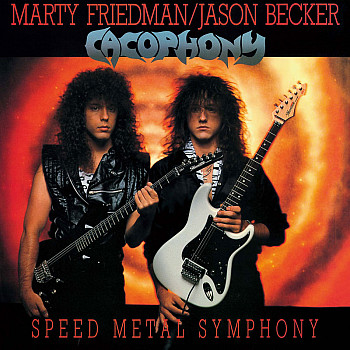 Jason Becker (Cacophony, David Lee Roth guitarist; solo artist): Mike Varney introduced us. We became best friends really quickly. We got along great. I instantly loved his guitar playing. I wanted to learn from him. I hadn't heard anything like his style. If I remember correctly, it was Mike Varney [who came up with the name Cacophony].
Jason Becker (Cacophony, David Lee Roth guitarist; solo artist): Mike Varney introduced us. We became best friends really quickly. We got along great. I instantly loved his guitar playing. I wanted to learn from him. I hadn't heard anything like his style. If I remember correctly, it was Mike Varney [who came up with the name Cacophony]. Marty Friedman: [Jason was] just an abnormally cool dude. You wouldn't even know the guy was a guitarist. I think the thing is he got really, really good at his instrument before he had any kind of band experience. He had no "band life." Where I was just the opposite—I was already playing in bands and banging groupies before I could even really play. So I had already been there and done that way before I even met Jason.
So by the time I met Jason, I really developed as a guitarist and as a recording artist, and he had developed as a really, really sick guitarist. So he was very green in the terms of "putting on a show," and what goes into making a show, rehearsing, playing live, looking cool, appealing to the people in the audience. He had none of that. But he had everything that none of the other guitar players had - abilities that were jaw dropping. So that left him with a very unique and very pleasant, likable character.
Jason Becker: Touring with Cacophony was a blast. We were playing at a club in Southern California, and some Carvin reps came to see the show. At one point, Marty and I were having trouble getting in tune. Peter Marino, our singer, proceeded to tell the audience how terrible Carvin was. Marty and I looked at each other and shook our heads. At that same show I met a kid who was too young to get in. That club even said I was too young, so I couldn't go in until we were actually onstage. Of course, I snuck in anyway. This kid was really sad, so I spent time with him outside the club before and after the gig. I gave him some picks, too.
After a gig on a hot muggy night in Jacksonville, we all went to a fan's house to hang out. I grabbed an acoustic guitar and started playing and singing really loud a song I was writing on the spot about our day, the gig, and us hanging out with the fans. There were lots of people there so it seemed appropriate. A guy came out of his room and said, "Do you know what time it is?" People were whispering, "That is Jason Becker!" He said, "I don't care who it is, I have to go to work in the morning!" I cracked up and played quietly.
Marty Friedman: We toured Japan and America - absolutely some of the best memories of my life. Loved every second. But our music was just too eclectic to really make use of Jason or my abilities in the mainstream. At the time, Cacophony was very, very abstract. Even though we were abstract, we did have our fans, but they were not enough to "make a living off," so to speak. Even though we loved each other and we loved the band we were in, we both knew that if we separated, we'd probably get into a much more mainstream and popular situation. And as soon as we did, Jason joined David Lee Roth's band, and I joined Megadeth. So we knew what we were doing. But it was very amicable.
Jason Becker: Gregg Bissonette asked Mike Varney for some great guitarists, and Mike suggested me. I sent tapes of my stuff. Dave asked me to record some versions of his songs. He loved what I did and flew me down to LA. I really liked Dave. We hung out and talked quite a bit. I learned a lot from his experience and stories. He was good to me and he seemed to appreciate my youth, talent, and humility.
Marty Friedman: I had a mutual friend with the management of Megadeth, and they'd gone through like sixty guys - to no avail. My friend said, "Why don't you audition?" Actually, I had an audition for Madonna the same week, and I got Megadeth, so I wound up not going to Madonna. But at the time, I was very borderline [get it?] homeless, so I was really happy to have any gig, but even more happy to join Megadeth, because it was very similar to what I was already doing in the '80s - not so much Cacophony, but my previous band, Hawaii, was like a New Wave of British Heavy Metal/thrash band, but with way more intense guitar. So that fit right in with Megadeth, and it was a very lucky time, because I was eating lollipops for lunch and shit like that. It was lucky timing.
Jas Obrecht (Guitar Player magazine editor, 1978–99): In 1990, when I interviewed him, Jason had just completed the sessions for David Lee Roth's A Little Ain't Enough. Fans were anxiously anticipating Roth's new album and upcoming tour—after all, Dave had previously performed alongside Eddie Van Halen and Steve Vai.
In early 1991, A Little Ain't Enough was released and went gold, but a tour with Jason Becker on guitar was not to be. At the time of our interview, Jason had just learned that he'd been diagnosed with amyotrophic lateral sclerosis, better known as Lou Gehrig's disease.
Jason Becker: I had been feeling a lazy limp in my left calf for a few months. I even toured with Cacophony with that feeling. When I moved to Southern California, I finally went to the hospital to see what it was. After a bunch of tests, they said it was probably ALS. I didn't know what ALS was and I didn't care. I just went about playing guitar for Roth. Luckily, I was able to finish the album, but during rehearsals for the tour, my legs would shake and my hands would fall off the guitar. Dave and I sadly decided I couldn't tour. He was sadder than I was.
Marty Friedman: We both had our gigs and we were both on top of the world. I had an arm problem and he had a leg problem - at the same time. His leg was kind of numb, and my arm was giving me problems. The doctor told me I should give up guitar. I had just joined Megadeth and was about to record Rust In Peace, and Jason was limping on one of his legs. He'd just joined Roth's band and was rehearsing to record an album with them. So we were still hanging out a lot in LA, and we were commiserating with each other. It's like, "What the fuck? We both got these dream gigs, and now, we're both not going to be able to play anymore and have to give this up." I was very fortunate that mine did heal. But his didn't. Just a big waste at the time, but as a result, he's probably inspired more people in a much, much bigger way, and, as a bonus, continued to create great music - so I can't feel negative about his situation.
Jas Obrecht: The Becker family was initially told Jason's life expectancy was three to five years. By 1996, he'd lost the ability to speak, so his father developed a method of communicating via eye movement similar to that used by Noirtier de Villefort, a character in Alexandre Dumas's The Count Of Monte Cristo. From his wheelchair, Jason continued to compose music with a computer that responds to eye movement.
On his 1996 album Perspective, he wrote that ALS has "crippled my body and speech, but not my mind." He followed up with 1999's The Raspberry Jams and 2003's The Blackberry Jams. The Jason Becker Collection came out around 2008. In his autobiography, Crazy From The Heat, David Lee Roth praised Jason as "the kindest, gentlest, most flexible, absorbing, want-to-learn spirit that I've ever really worked with." This parallels my observations of the man. As with Randy Rhoads, I don't think we have enough of Jason's music on record to really figure out where he would have fit in the grand scheme of things. We're very lucky to have the recordings he was able to complete.
Jason Becker: I am doing pretty well. My health is pretty stable. I communicate pretty quickly with a system my dad invented. It isn't a computer thing. Each letter consists of two specific eye movements that my caregivers and I have memorized. It is way faster than any computer system I have tried. I can say anything I want. I use this for composing music using Logic Pro. I give detailed instructions for what notes to put where and what instruments to use. You would be surprised at how fast it can go if I am extra inspired. I wrote a three-minute orchestral piece in the last three weeks. At first, it can be a one note at a time thing, but as I go along, there is copying and pasting chords and counterpoint stuff. I can often hear something in my head first, so it isn't like I am stabbing around in the dark.
Marty Friedman: Had Jason not gotten sick, we would have probably done a lot more together. It was such an eclectic band that I couldn't really see it happen any time back then, but actually now, if Jason could play now, I'd do it in such a heartbeat, because there's so much more interest and so much more acceptability to intense music now than there was back then. So people listen to Cacophony, and their ears can accept it now, whereas ten years ago or twenty years ago, it was just like, "What the fuck is this noise?" But now, it's completely acceptable. I'm praying that Jason gets better and can play guitar again. Then you'll see a reunion.
This is an extract from Shredders! The Oral History Of Speed Guitar (And More) by Greg Prato, published by Jawbone Press on March 15, 2017.
More Song Writing

